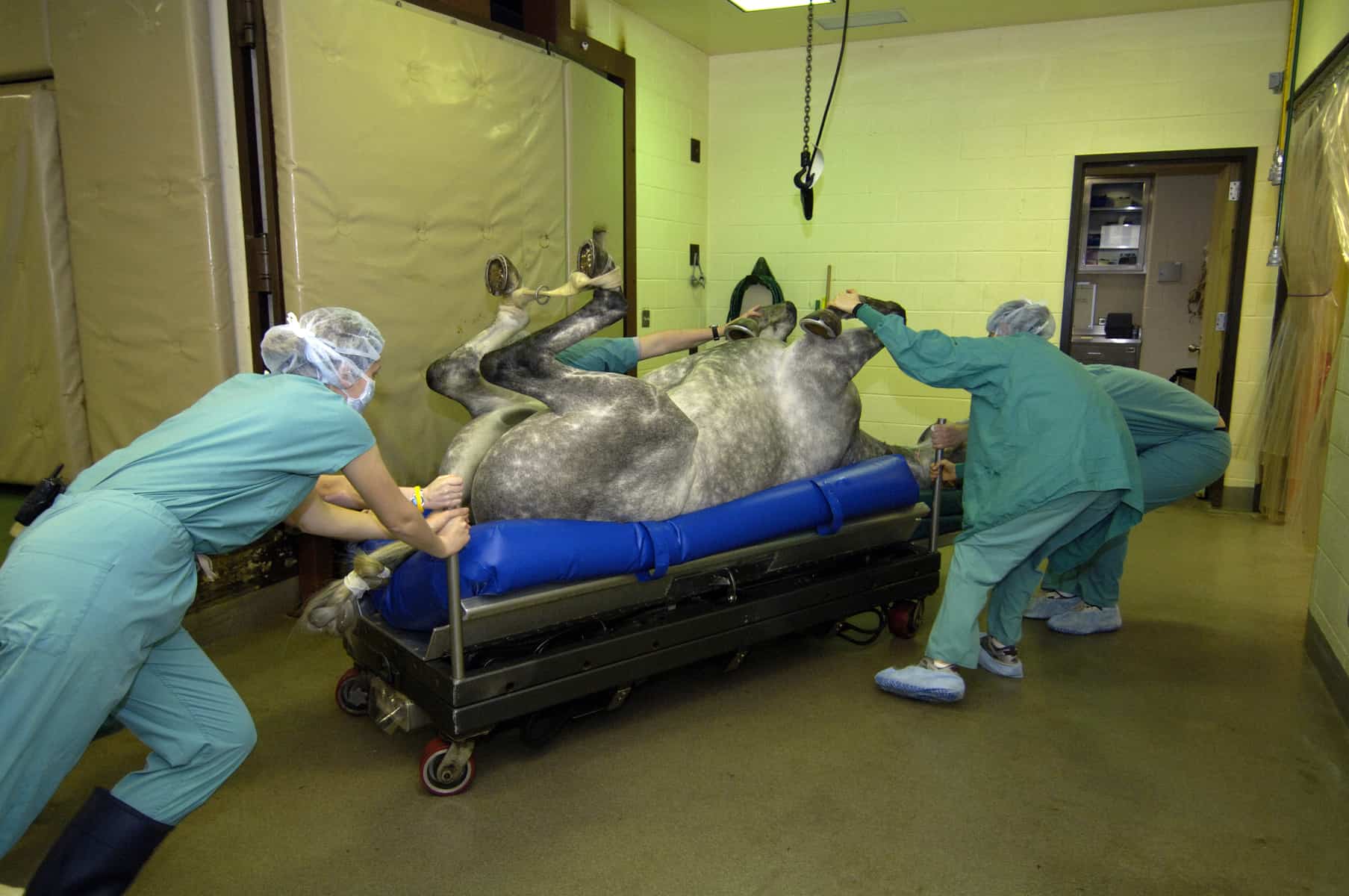Old Horses Aren’t at Higher Risk of Reflux Post-Colic Surgery

“Postoperative reflux can indicate stasis (lack of movement) of the intestinal tract, mechanical obstruction at an anastomosis (where intestines have been joined together after a resection during colic surgery) or adhesion site, or even an intestinal repair breakdown,” said surgical resident Sophie Boorman, BVetMed, of Auburn University’s College of Veterinary Medicine.
She said predicting which horses have a higher risk of developing postoperative gastric reflux might:
- Help identify horses that will need more intense management following surgery, and
- Help owners prepare for this expensive, potentially fatal complication.
“The perception that older horses have more complications after colic surgery is widespread and extends to postoperative reflux,” said Boorman. “This is likely because older horses tend to develop strangulating lipomas—a benign fatty tumor that can entrap and strangulate the small intestine, causing bowel devitalization and necessitating surgery
Create a free account with TheHorse.com to view this content.
TheHorse.com is home to thousands of free articles about horse health care. In order to access some of our exclusive free content, you must be signed into TheHorse.com.
Start your free account today!
Already have an account?
and continue reading.

Written by:
Stacey Oke, DVM, MSc
Related Articles
Stay on top of the most recent Horse Health news with















